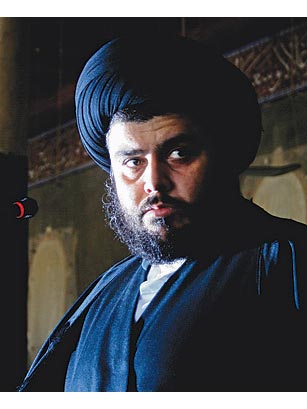
On Baghdad's Streets, This Man Rules
The defining moment of Muqtada al-Sadr's year came on Oct. 18, when the radical Shi'ite cleric was visited in his Najaf home by Prime Minister Nouri al-Maliki. Iraqi leaders usually visit the Shi'ite holy city to pay obeisance to the Grand Ayatullah Ali Husaini Sistani. By adding al-Sadr to his itinerary, al-Maliki was acknowledging the cleric's newfound status as the prime mover in Iraqi politics.
Al-Sadr, 34, rose from prewar obscurity to the center stage of Iraqi politics on the strength of an illustrious surname (he hails from a line of revered ayatullahs), a relentless anti-Americanism and a ragtag but bloodthirsty militia, the Mahdi Army. This year he added an even more potent weapon to his arsenal: democratic clout. With the loyalty of 30 members of Iraq's 275-seat parliament, al-Sadr controls only the second largest group within the dominant Shi'ite alliance, but it's enough to undermine the fragile coalition that keeps al-Maliki in power.
The combination of seats in parliament and guns in the street makes al-Sadr the governing factor in American and Iraqi plans for '07. Whether U.S. troops stay or go and the civil war eases or escalates, much will depend on the mood of Muqtada al-Sadr.